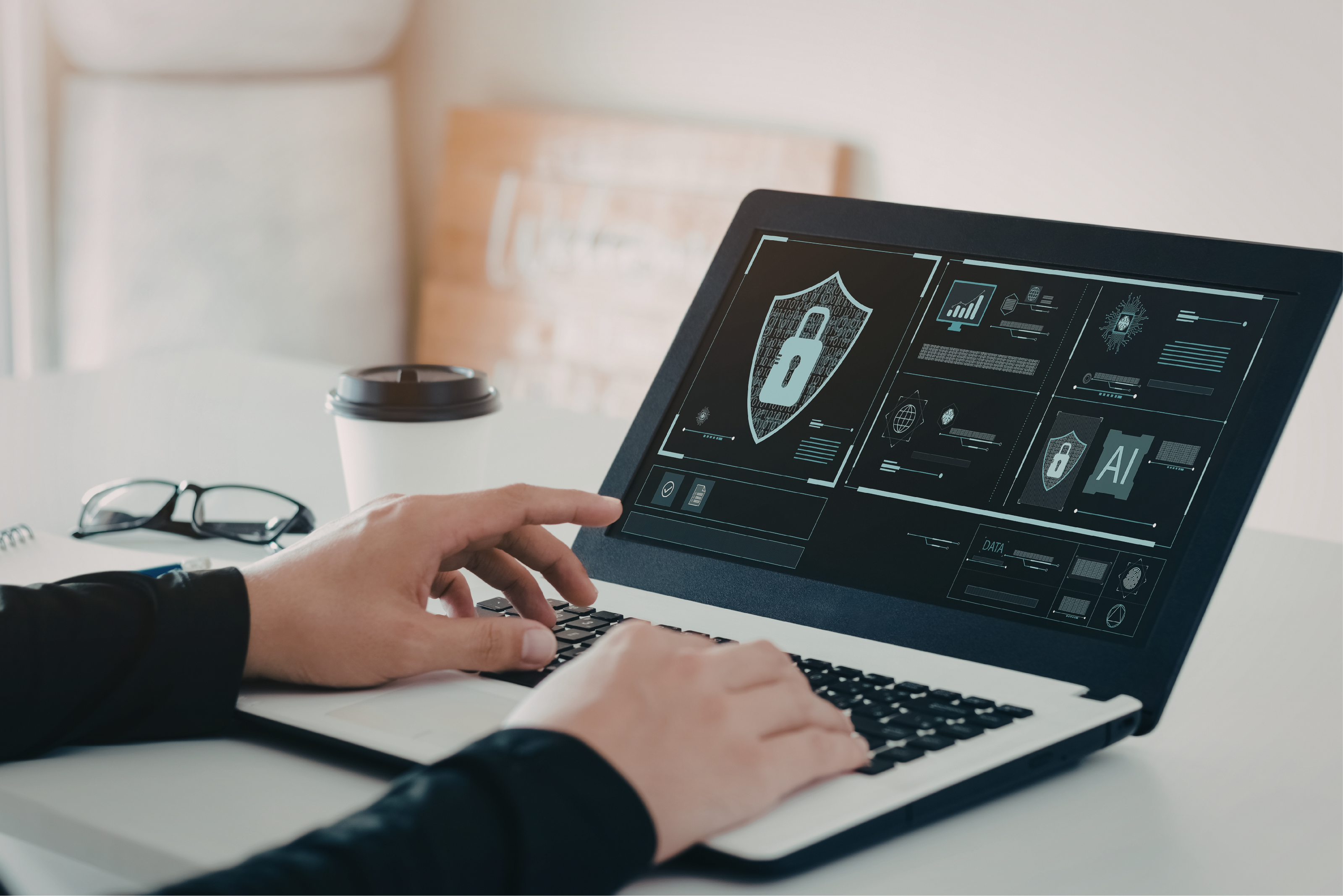Portland Accounting IT Solutions: Benefits of IT Management for CPAs
Proactive IT management is a strategic approach that anticipates and addresses potential issues in IT infrastructure before they escalate into...
7 min read
Heroic Technologies : Updated on August 4, 2025

E-commerce has become a cornerstone of the global economy, with online sales steadily growing year after year. This shift highlights the need for businesses to adopt secure and efficient IT practices.
A robust IT strategy is crucial for e-commerce stores for several reasons:
Security is paramount today. Implementing strong security measures protects customer data and maintains brand integrity. Key considerations include:
By prioritizing e-commerce security and IT strategies, businesses can drive success while safeguarding their reputation and customer relationships.
E-commerce security includes the methods and technologies used to protect online transactions and customer information. This involves keeping data like credit card numbers, personal information, and login details safe from unauthorized access and cyber threats.
Strong security systems are important for a few reasons:
E-commerce stores face various security threats, including:
It’s essential to implement effective e-commerce security practices to reduce these risks and protect both the business and its customers.
An effective IT strategy is crucial for aligning with business objectives and driving technology innovation. E-commerce businesses thrive when their IT framework supports their goals. Key aspects include:
A well-defined IT strategy ensures that technology initiatives directly contribute to business success. This alignment fosters efficiency, enhances customer experiences, and promotes scalability.
The Chief Information Officer (CIO) plays a pivotal role in crafting IT strategies tailored for e-commerce. They assess technological needs, identify trends, and prioritize projects that can enhance operational efficiency and security, ultimately driving growth.
Strong communication channels within the organization promote transparency and collaboration among teams. Governance frameworks guide decision-making processes, ensuring that all stakeholders are informed and aligned with the IT strategy.
Implementing these principles establishes a solid foundation for e-commerce operations. By focusing on aligning IT initiatives with broader business goals, organizations can navigate the complexities of digital marketplaces more effectively.
Creating a business-aligned IT strategy requires a thoughtful approach to ensure that technology initiatives support overall business goals. Follow these steps:
A well-defined strategy not only improves alignment with business goals but fosters innovation through technology adoption. This approach positions your e-commerce store for sustained growth while enhancing customer trust and satisfaction.
To protect customer data, it’s crucial to adopt several key practices that enhance your e-commerce security framework. Implementing SSL certificates is foundational for encrypted transactions, ensuring that sensitive information transmitted between the customer and your server remains secure.
Consider these essential practices:
Establishing strong password policies is vital for safeguarding e-commerce stores. A secure password is the first line of defense against unauthorized access. Consider these essential practices:
Regular software updates are crucial for e-commerce security, primarily for addressing vulnerabilities. Outdated software can become a target for cybercriminals, leading to significant risks that may compromise customer data and trust.
Best practices for software maintenance include:
Patching vulnerabilities promptly helps defend against common threats like malware and DDoS attacks. A proactive stance in software maintenance not only protects customer data but also supports the overall performance of your e-commerce site.
Incorporating these practices into your IT strategy enhances your e-commerce platform’s resilience against cyber threats.
Selecting a secure e-commerce platform is critical for the success of your online store. You should consider several factors:
Below are a few popular platforms:
The unique protocols and features of these platforms can significantly enhance your site’s security, creating a safe shopping environment for customers while building trust in your brand.
E-commerce security is crucial in today’s digital world. Using the right tools can greatly improve your cybersecurity strategies for e-commerce. Here are some essential tools that enhance security:
When looking for solutions, there are many platforms that offer a wide range of tools designed specifically for Magento, WooCommerce, and Shopify users. They include:
Using flexible solutions with compatible plugins or extensions ensures your e-commerce platform stays secure while meeting the specific needs of your business. Implementing these tools strengthens your store’s defense against evolving cyber threats.
Aligning your IT strategies with business goals is essential for fostering innovation and building consumer trust. By implementing best practices for e-commerce safety, you not only protect sensitive customer data but also enhance your brand’s reputation.
Consider these key actions to secure your e-commerce operations:
Taking these steps encourages a culture of security within your organization. Educate employees on the importance of maintaining a secure online environment.
Start implementing these best practices today. Your proactive approach will not only safeguard your customers but will also drive long-term success.
The essential IT practices for e-commerce stores include developing a robust IT strategy that aligns with business objectives, implementing strong e-commerce security measures to protect customer data, and regularly maintaining software to address vulnerabilities. These practices help drive business success and build consumer trust.
E-commerce security is crucial because it protects sensitive customer information from common threats like data breaches, phishing attacks, and DDoS attacks. A strong security framework not only safeguards customer data but also maintains brand trust, which is vital for the success of any online business.
To develop a business-aligned IT strategy, start by outlining a clear IT mission and guiding principles. Evaluate your current IT performance and identify key strategic initiatives that can enhance your e-commerce operations. Effective communication and governance are also critical in implementing these strategies successfully.
Best practices for safeguarding customer data include using SSL certificates for encrypted transactions, implementing secure payment processing methods, employing strong password policies, and utilizing two-factor authentication (2FA) to mitigate unauthorized access risks. These measures boost consumer confidence and protect sensitive information.
Regular software updates are essential to address vulnerabilities that may be exploited by cyber threats. Maintaining website plugins and considering automated updates can minimize risks, especially for small businesses. Regular maintenance checks ensure that your e-commerce platform remains secure and functional.
When choosing an e-commerce platform, consider factors such as security features, ease of use, scalability, available integrations, and support options. Popular platforms like Magento, WooCommerce, and Shopify offer unique protocols that enhance security. It’s crucial to select a platform that aligns with your business needs while ensuring robust protection against cyber threats.
Proactive IT management is a strategic approach that anticipates and addresses potential issues in IT infrastructure before they escalate into...

Remember when a simple password felt like enough to guard your digital kingdom? Those days are long gone. Industry research, including Verizon’s Data...

Picture this: It’s 2:00 PM on a Tuesday. You’ve just finished a heavy lunch, and now you’re sitting in a dimly lit conference room, or worse, staring...

If your law firm hasn’t already embraced Software as a Service (SaaS) technology, you could be missing out on a game-changing opportunity. From...
Halloween is not just about costumes and candy; it also serves as a reminder of the importance of cybersecurity awareness. As October unfolds, the...

The festive season is a prime target for holiday scams. Cybercriminals exploit the excitement of Christmas prep to deceive consumers and businesses....